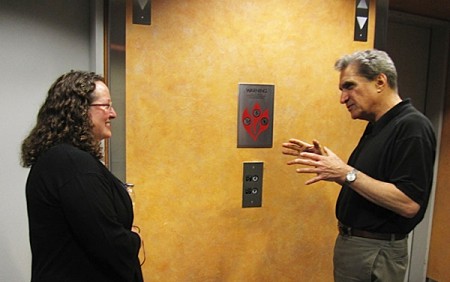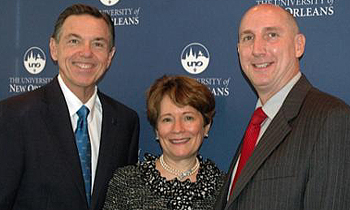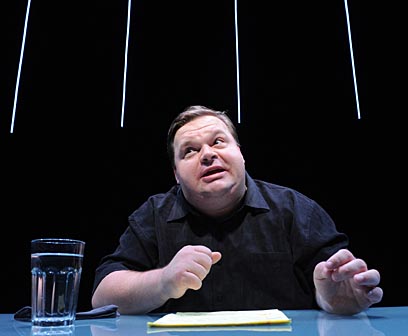Tag: Journalism
Public radio to go deep on political coverage with launch of GOP convention
Here’s a roundup of how NPR, Democracy Now! and Tampa's WUSF are covering the party conventions.NewsHour gives party conventions 18 hours, assigns female anchor team
With the NewsHour's Gwen Ifill and Judy Woodruff stepping into co-anchor roles for PBS’s coverage of the Republican National Convention in Tampa, producers ...NPR’s embedded bards riff on news through poetic lens
NPR’s All Things Considered now comes with a monthly dose of poetry, courtesy of poets who embed themselves among the network’s journalists...Insistent sponsors put newsrooms on alert
Underwriters of public radio programs increasingly want to link their names more closely to particular stories and reporting projects, according to station ...NPR receives $1.5 million grant to support race and ethnicity reporting
...Like Planet Money, the as-yet-unnamed unit will establish its brand on multiple platforms, through reports for NPR’s radio shows, a blog and ...WWNO, NPR plan expanded newsroom to serve New Orleans
A group of public radio partners is preparing to launch a new local journalism nonprofit that will employ upwards of 20 people ...Daisey, onstage and off air, revives his ‘Agony and Ecstasy’
“There is no objective, journalistic version of the show,” Daisey said. “I will be, always, making constant lies of omission by leaving ...Knight retools grant programs, adds new fund for ‘tinkerers of all kinds’
In another set of changes intended to adjust its journalism philanthropy to the rapidly evolving digital-media marketplace, the John S. and James ...NPR builds up team of news-app developers
NPR is stepping up its efforts to innovate in digital news by expanding staff and hiring Brian Boyer, a programmer who created ...Satullo: You’ll make mistakes, so be sure to learn from them
Do you have the courage to fail? I asked that leading question during a keynote address to public media journalists who attended “Taking ...CPB grant to NPR backs expanding foreign coverage
CPB has awarded a $500,000 grant to NPR to support the network’s international news coverage. The grant, announced at a March 26 awards ...New Jersey’s pubradio operators step up coverage of Garden State
Nearly a year ago, two of the East Coast’s largest metropolitan pubcasting powerhouses took over nine New Jersey pubradio stations, casting uncertainty ...NBC, noncom reporting relationships “still in infancy” but producing stories
The collaborations between several NBC owned-and-operated stations and nonprofit news enterprises, part of Comcast’s deal to takeover NBC-Universal (Current, Jan. 17), are generating ...Ford backs for-profit newsroom
A recent Ford Foundation grant to the Los Angeles Times highlights the heightened competition pubcasters face for philanthropic dollars in a fast-changing media world. ...Delays by IRS put chills on news startups
Nonprofit news outfits that have sprung up across the country to fill gaps left by commercial media have hit an unexpected barrier ...









